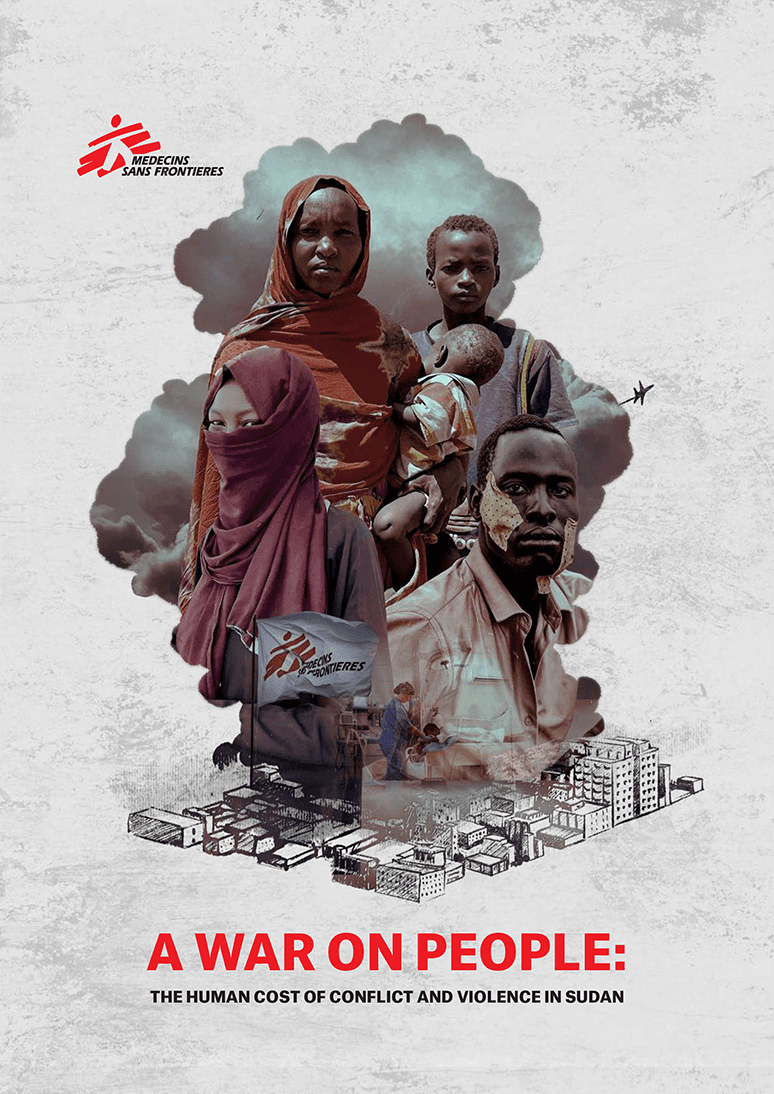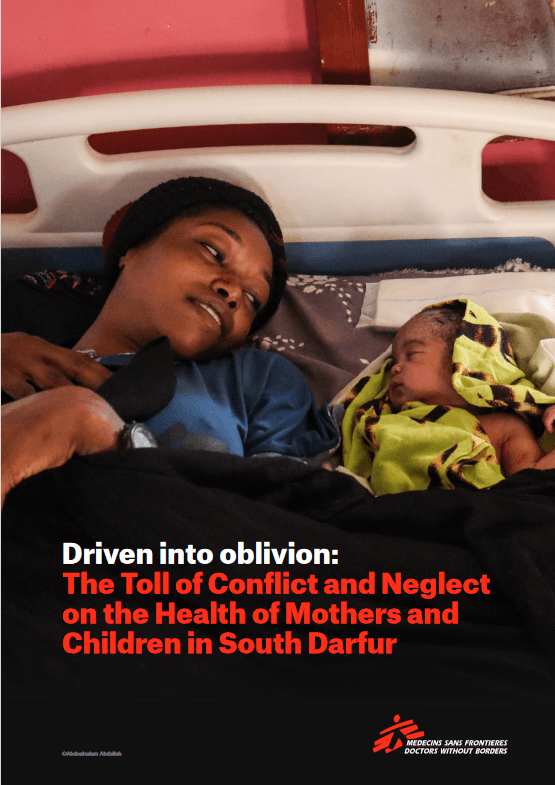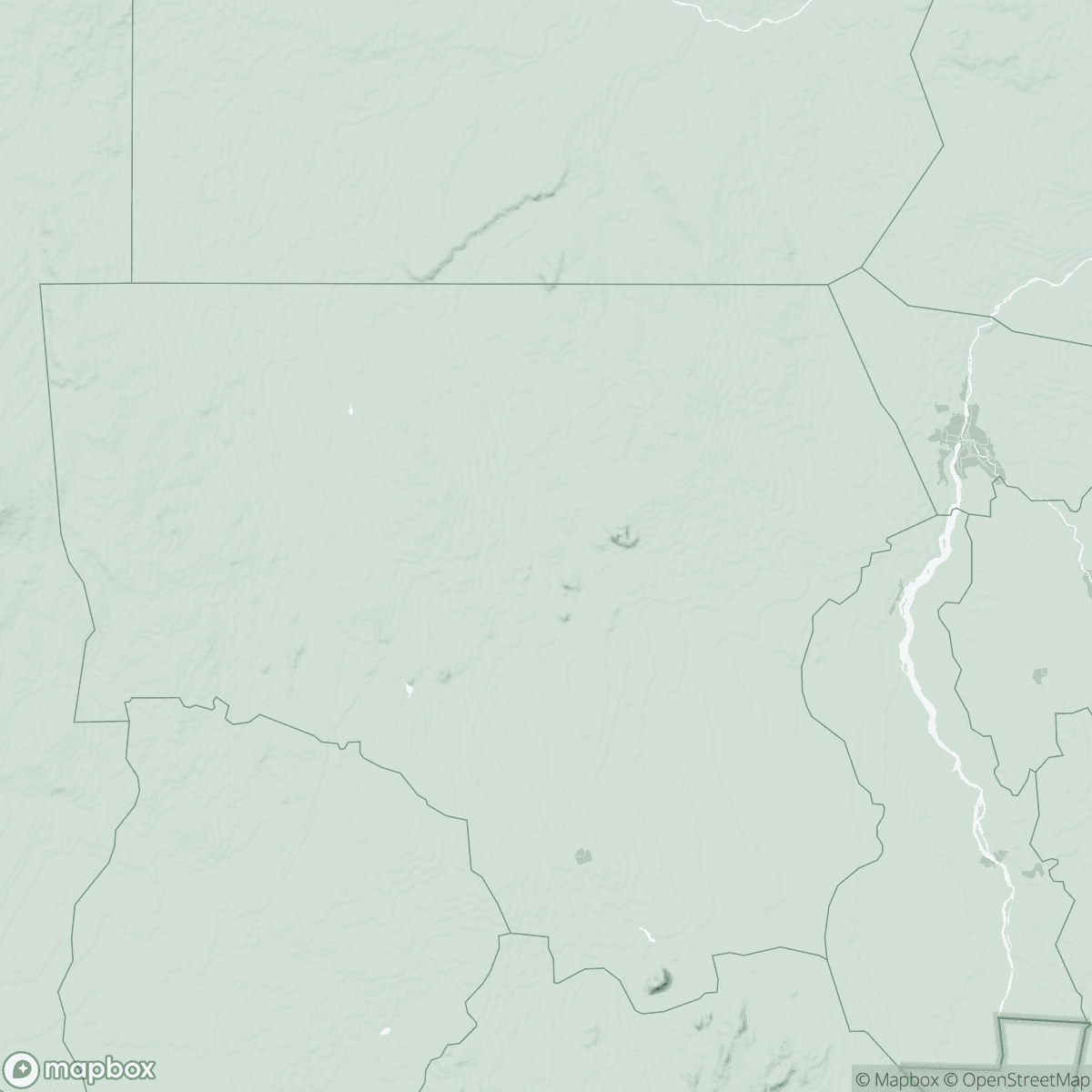War in Sudan
On 15 April 2023, intense fighting broke out between the Sudanese Armed Forces (SAF) and the Rapid Support Forces (RSF) in Khartoum and across most of Sudan. Since then, the conflict has killed and injured thousands of people.
Some key figures:
- 30.4 million people in Sudan need humanitarian assistance (OCHA).
- Almost 12 million people have been forcibly displaced (OCHA).
- More than 4 million fled to neighbouring countries, mainly Chad and South Sudan (UNHCR).
- Sudan also still hosts 858,000 refugees and asylum-seekers, primarily from South Sudan, Ethiopia, and Eritrea (UNHCR).
- 4.2 billion USD has been requested through the 2025 Sudan Humanitarian Needs and Response Plan to address the crisis; but only 27.5% of the funding has been met so far (OCHA).
- Since the conflict started in April 2023, the WHO has verified 198 attacks on healthcare, killing more than 1,700 health workers and patients, and injuring over 400 (WHO).
Figures as of October 31, 2025
Context
Depuis plus de deux ans, de vastes régions du Soudan sont en proie à des violences continues, notamment d'intenses combats urbains, des échanges de tirs, des bombardements et des frappes aériennes. Le système de santé, déjà fragile avant le début du conflit, peine à répondre aux besoins médicaux existants et nouveaux, tout en subissant une pression énorme due à la destruction et au pillage des infrastructures de santé, à de graves pénuries de services publics et de fournitures médicales, et à un personnel sous-financé, non rémunéré et surchargé de travail. De ce fait, l'accès aux soins médicaux est extrêmement difficile pour la population dans tout le pays.
Cette situation a engendré la plus grande crise de déplacements de population au monde.
Depuis son début en avril 2023, la guerre au Soudan a contraint près de 12 millions de personnes – soit environ un Soudanais sur cinq – à fuir leur foyer. La majorité sont des déplacés internes au Soudan, mais plus de 4 millions ont fui le pays pour se réfugier dans des pays voisins comme le Tchad et le Soudan du Sud. Nombre de ces déplacés vivent dans des camps surpeuplés, créés après la crise du Darfour en 2003, sans aucun abri pour les protéger de la pluie et de la chaleur accablante de l'été. D'autres vivent dans des bâtiments abandonnés ou des camps de fortune où les conditions de vie sont déplorables.
Le système de santé soudanais s'est effondré.
Le système de santé soudanais était déjà fragile avant ce conflit. Depuis 2023, il est complètement dévasté. Les établissements médicaux subissent des tirs d'artillerie et des attaques de drones, des pillages, des occupations par les forces armées, des coupures de courant et des pénuries de matériel et de personnel médicaux. Les structures qui restent opérationnelles sont submergées par les besoins, tandis que de nombreux Soudanais n'ont pas accès aux soins essentiels.
Des violences ethniques ont éclaté au Darfour.
Au Soudan, la population continue de subir des violences atroces, les belligérants s'attaquant les uns aux autres sans aucun respect pour la vie civile. Ces violences ont également pris une dimension ethnique au Darfour. Les réfugiés que nos équipes rencontrent au Tchad décrivent une spirale de violence insoutenable : pillages, maisons incendiées, passages à tabac, violences sexuelles et massacres, visant particulièrement la minorité ethnique masalit.
Il est impératif de protéger les civils, les zones résidentielles, les infrastructures, le personnel de santé et les établissements de santé.
La réponse humanitaire demeure cruellement sous-financée.
Elle est également entravée par l'accès restreint aux zones de conflit. Un renforcement urgent de l'aide humanitaire est nécessaire pour répondre aux besoins de la population soudanaise. MSF est l'une des rares organisations internationales présentes dans les régions du Soudan les plus durement touchées par la violence. Cette situation est due en partie à l'escalade de la violence, à l'anarchie et aux difficultés d'accès imposées par les deux parties au conflit.
MSF's Response
Last updated: December 2025
Presence and Health Facilities Supported
MSF operates in 8 of Sudan’s 18 states, where it directly runs 3 hospitals and supports 17 additional hospitals as well as 16 primary health centres. Most of the supported facilities are Ministry of Health structures, where MSF provides targeted support to specific services and departments. Tawila, Um Rakuba and Tenedhba hospitals are exceptions, as they are fully managed by MSF.
Medical Activities
MSF teams deliver a comprehensive range of medical services, including surgical care, wound management, physiotherapy, maternity care, nutrition and paediatric services, as well as primary healthcare. They also conduct routine vaccination programmes and reactive vaccination campaigns, and provide mental health support.
Water, Sanitation and Humanitarian Assistance
In addition to medical care, MSF implements water, sanitation and hygiene activities, including the construction of boreholes and latrines. The organisation also distributes food and water in camps for internally displaced people.
Between January and November 2024, MSF has carried out more than :
outpatient consultations
emergency presentations
inpatient therapeutic centre admissions
surgical interventions
inpatient admitted
ante-natal consultations
deliveries
individual mental health consultations
non-communicable disease consultations
sexual violence consultations
— Our staff in Sudan
Data as of November 30, 2025
locally hired staff
international mobile staff
Our call for Sudan
All armed groups and those who exert influence over them MUST ENSURE that humanitarian aid can move freely throughout all regions of the country. The parties to the conflict continue to impose deliberate blockades to prevent the delivery of medical and humanitarian supplies to the areas where they are desperately needed, thus preventing populations from receiving the medical care they so urgently require.
Civilians, humanitarian workers, and healthcare facilities must be spared from the fighting. Bombing of healthcare facilities, deliberate harassment, and attacks on healthcare professionals MUST STOP.
The humanitarian response MUST IMMEDIATELY be scaled up to address the massive needs of the population and put an end to this suffering.
Learn more

.
The human cost of conflict and violence
The report, ‘A war on people – The human cost of conflict and violence in Sudan’ describes how both the Sudanese Armed Forces (SAF) and the Rapid Support Forces (RSF) and their supporters are inflicting horrendous violence on people across the country. The war has wrought a catastrophic toll since fighting began in April 2023 with hospitals attacked, markets bombed, and houses razed to the ground.

.
Driven to oblivion
Driven to oblivion: the toll of conflict and neglect on the health of mothers and children in South Darfur reveals the number of maternal deaths in just two MSF-supported hospitals in South Darfur between January and August to be more than seven per cent of the total number of maternal deaths in all MSF facilities worldwide in 2023. A screening of children for malnutrition also found rates well beyond emergency thresholds.
MSF's response in border countries
The war in Sudan has sparked the world’s largest displacement crisis, with more than 7 million internally displaced in addition to over 4 million who have fled to other countries.
Our teams provide support for refugees and returnees in neighboring Chad and South Sudan, where many displaced people live in poor conditions with limited access to basic needs.
Make a donation with Payconiq
#1. Scan this code with your Payconiq App.
#2. Indicate the amount of your donation.
#3. Validate your donation.
By making a donation via Payconiq, your donation will be allocated to all Médecins Sans Frontières projects, where the needs are greatest.




